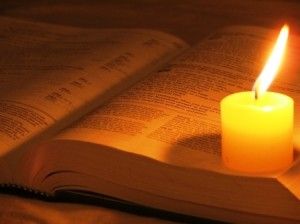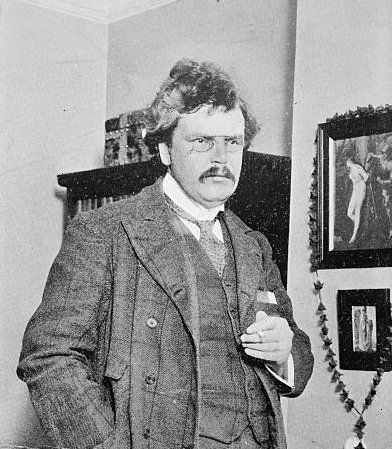Calling All Nerds

20 Books to Make You a Smart Catholic
Joseph Epstein is the best essayist alive. He's urbane, funny, self-deprecating. He's a fine stylist, and he's remarkably well-read. I remember William F. Buckley marveling at Epstein's erudition and wondering how Epstein could have so many anecdotes and references at his disposal. Coming from a guy of Buckley's learning, that's high praise.
So it was with great interest that I turned to his essay, “Joseph Epstein's Lifetime Reading Plan” and his attempt to respond to a recent college graduate's question: “What books should I read?” This question, Epstein said, was nothing less than asking, “How do I become an educated person?”
Epstein used the question to launch his essay, but he didn't provide a list of books. He suggested that a person always have a classic going: Cervantes, Tocqueville, Montaigne, Homer, Shakespeare, Tolstoy, Dostoyevsky, Plato. That's thumpingly good advice, especially for someone like Epstein (and me), who always has two or more books going at once. It keeps one's reading life varied.
But what about a list? Epstein said there is no dispositive list, and he's right. The canon of Western civilization alone is neither settled nor static, there isn't enough time to read everything in one lifetime, and everyone's situation is different. One list won't fit all.

Still, I think a list is possible, and here's mine: “The Top 20: Books I Want My Children to Read Before They're 25 (or At Least 30).” The list is designed for inquiring Catholic young adults. It doesn't include any classics (Epstein's advice to keep a classic going at all times stands) and it ignores the Bible (if you need someone to recommend the Bible, you're beyond help). Every book was published after 1900. Although the list is geared toward young men and women, maturer adults would also benefit from reading the books on it.
After each entry, I have provided a recommended age. The age is somewhat arbitrary since each person is different, but the age reference should give you an idea what books are suitable for very young adults and which are better suited for college graduates.
I won't argue that it's the best list, and I don't expect everyone to agree with the list, and I wouldn't be surprised if I've omitted a few that should've made it. But despite its potential shortcomings, I highly recommend every book on it.
The List
1. James Schall, Another Sort of Learning. This is my lead book because it's full of reading lists. Indeed, Schall introduced me to many of the books listed here. It channels a person's reading and one's intellectual life (a crucial thing, since many youngsters have no idea where to start or how to proceed, and today's lame college educations aren't helping). Age: 21.

2. A.D. Sertillanges, The Intellectual Life. This is one of Schall's favorites. It teaches people, Schall writes in his The Life of the Mind (also recommended), “how to maintain their intellectual curiosity in a practical, effective manner throughout their lives.” Sertillanges teaches people how to read, write, and discipline their time and souls. Heady stuff. Age: 22.
3. C.S. Lewis, Mere Christianity. Most of Lewis' books should be read, but this one in particular helps a person think like an intelligent Christian. I also recommend The Screwtape Letters. For commentaries on Lewis, try Gilbert Meilaender's A Taste for the Other and Peter Kreeft's C.S. Lewis: A Critical Essay. Age: 19.
4. Montague Brown, The One-Minute Philosopher. This book's easy prose provides a coherent explanation of virtues and vices. There's no need to read it front to back; just pick it up and read the entries that seem interesting. Age: 16.
5. Malcolm Muggeridge, Confessions of a Twentieth-Century Pilgrim. Muggeridge savagely slashed against the errors of modernity with love. I know that seems inconsistent, but he did it. The cultural errors of the 1960s and 1970s are still the cultural errors of the early 21st century, so it's still relevant. Age: 17.
6. Russell Kirk, The Conservative Mind. This is not a handbook about becoming a good little Republican. It's a parade of biographies that illustrate how to apply the highest truths to societal and political issues. Another great Kirk book: Enemies of the Permanent Things. Age: 21.
7. Dinesh D'Souza, The Catholic Classics (volumes I and II). These books introduce twenty Catholic classics. Whether or not a person follows his advice to read these books, the background information and summaries are invaluable to understanding Catholicism's best literature. Age: 17.
8. E.F. Schumacher, A Guide for the Perplexed. A great way to begin to understand some of the highest (and mystical) truths of our existence. Age: 22.
9. E. Michael Jones, Degenerate Moderns. A great book for understanding the sinful roots of modern intellectual errors. Age: 20.
10. Henry Veatch, Aristotle, A Contemporary Appreciation. This is an excellent introduction into Aristotle's thought, and it will help a person learn how to think. Although it's an introductory book, it's not written at such an elementary level that it's painful to read. Age: 18.
11. Herbert A. Deane, The Political and Social Ideas of St. Augustine. This book isn't nearly as narrow in scope as the title implies. The titles of the first two chapters (“The Theology of Fallen Man” and “The Psychology of Fallen Man”) signal its broad scope. Age: 23.
12. Thomas Merton, Seven Storey Mountain. The questions with which Merton struggled and the answer he found (the monastic life) are relevant to any Christian in any age. Age: 21.
13. Flannery O'Connor, The Habit of Being. These are the collected letters of Flannery O'Connor. They will give insight into writing, religion, and how to live. Age: 20.

14. G.K. Chesterton, Orthodoxy. Chesterton is not easy to read, but the effort of getting used to him will be amply rewarded. He was a powerful thinker who grappled with the heaviest issues lightly. All of his other books are also highly recommended, especially The Dumb Ox and The Thing: Why I Am A Catholic. Age: 20.
15. Josef Pieper, Leisure, The Basis of Culture. This is a difficult book. It must be read slowly and carefully, but its message is indispensable: “Don't be busy all the time. Take time to do nothing.” Pieper explains the reasons only as a first-rate philosopher can. Also highly recommended: A Guide to Thomas Aquinas, The Silence of St. Thomas, and the Pieper Anthology. Age: 24.
16. Joseph Pearce, Literary Converts. A fact-filled and curiously-inspiring book about a series of converts to the Catholic faith in twentieth-century England. Age: 22.
17. John Senior, The Restoration of Christian Culture. It shows how things could be and should be. Quixotic, but that's the whole point. Beautifully written. Age: 22.
18. Etienne Gilson, Reason and Revelation in the Middle Ages and God and Philosophy. Great introductory books to metaphysics. Also try Jacques Maritain's Introduction to Philosophy. Age: 22.
19. Paul Vitz, Psychology as Religion. This book helps a person avoid much of the pop (and false) psychology that passes for wisdom today. Age: 24.
20. Clare Booth Luce, editor, Saints for Now. No Catholic reading list would be complete without a dose of saints, and this is one of the best doses you'll find. Its contributors were some of the best writers of the mid-twentieth century. Its semi-intellectual approach makes the book a great fit for this list. Age: 17.
That's it. I can't guarantee that your son (or daughter) will be a scholar after reading these 20 books. I can't even guarantee that he will be an educated Catholic. But if he reads these books with even a modicum of care, I guarantee you that his thinking will forever shift for the better.
This article appeared last year in Catholic Men's Quarterly
